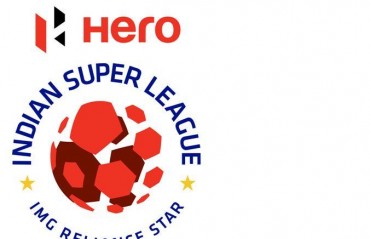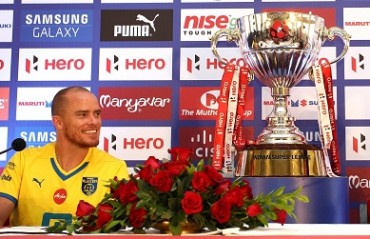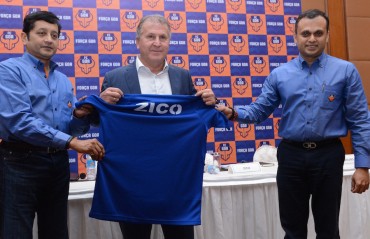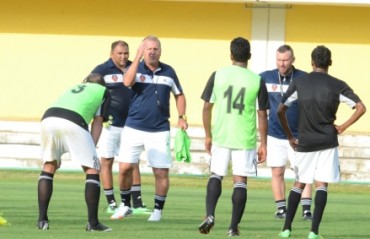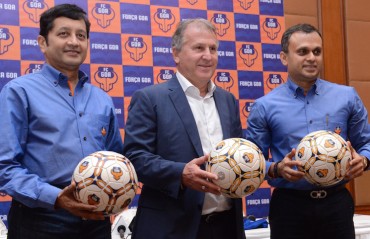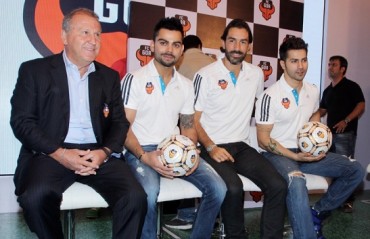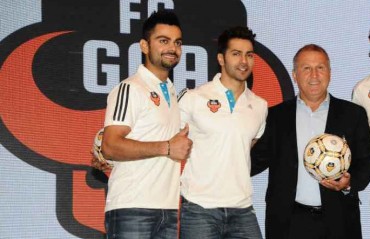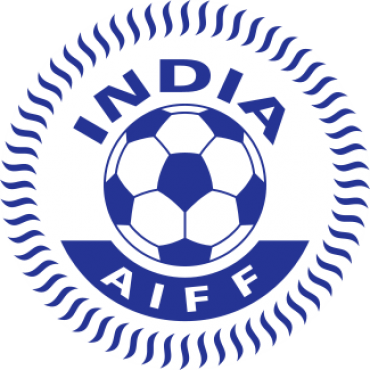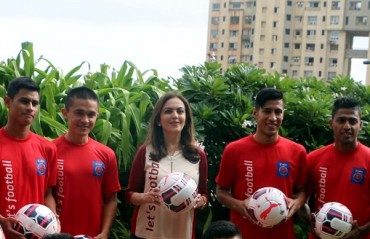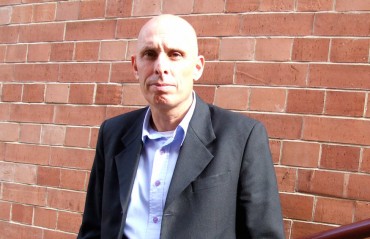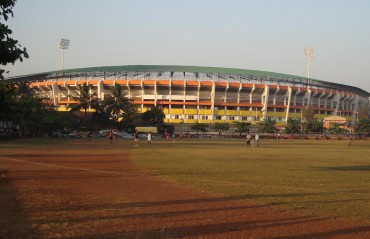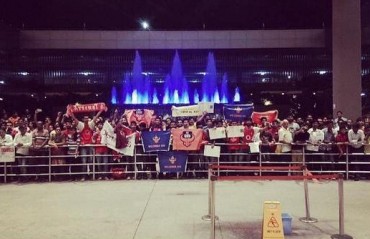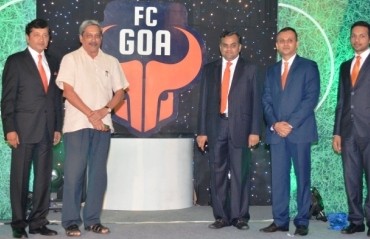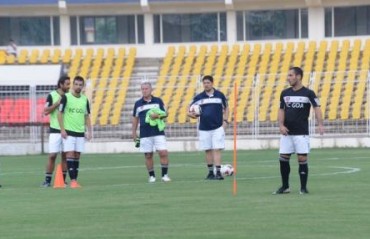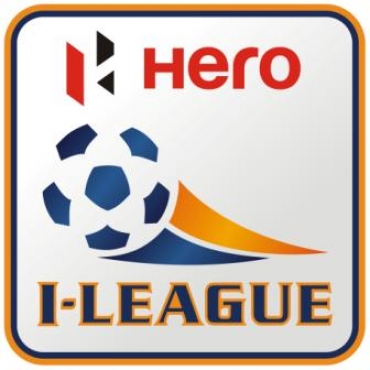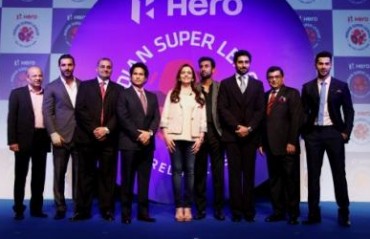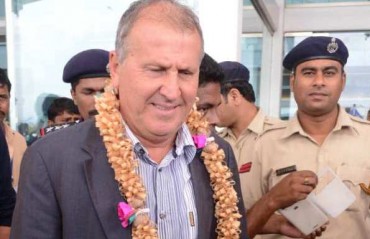SUNBURNT TERRACE: Opposition to merger of ISL & I-League reflects purely commercial interests
- By Chiranjit Ojha

- December 30, 2015
ZICO RECENTLY came out hitting hard -- harder than usual, that is -- at the developmental role being carried out by ISL in Indian football. The FC Goa coach has been a vocal proponent of merging I-League and ISL since the private tournament's inception, but in terms of dishing out direct criticism to the 2-month mega event he himself has been a part of he has been measured and benevolent. But not this time. He said that ISL brought "zero" benefit to Indian football.
Much has been made out of his comments already. A section of the media is eager to dismiss his statement as a bitter retort from a coach who has just lost the ISL final. It has also been taken as a sign that the Brazilian football legend's tenure at the Fatorda-based franchise is over. The latter may well be true. But what he has said isn't very different from what he has been saying for more than a year. Only this time he didn't use the kid gloves.
To be frank, ISL's contribution to the development of the sport in India isn't exactly "zero". Few can deny the role ISL has played in spreading the sport out to Delhi, Chennai etc and that too should count as "development" of the sport; as a commodity, a brand, a product. People in new cities taking interest in the game is a welcome development after the decades of compartmentalization that Indian football has gone through.
But opening franchises in new cities and touching up a couple of already-existing stadiums does not fall into the category of "core development" of a sport. That requires the opening of academies, having junior teams that play regularly, creating a direct channel of progress for a youngster all the way from his cadet days into the first team as a professional footballer. It means taking care of a players and honing them with long-term goals. It means having a tangible qualitative impact on the national team. That's what Zico meant when he said "development", and in these regards ISL has done zero good for Indian football.
In fact, if you take a look into it, the impact of ISL on Indian football has been full of negatives. There was the forced cancellation of the national team's conditioning camp, the lack of an international break, the fiasco around Mandar Rao Dessai and Romeo Fernandes not showing up for the SAFF Championship. National team coach Stephen Constantine has been repeatedly vocal about the negative impact the ISL's schedule has on the players' fitness.
Then there's the issue with ISL's aversion to give real new talent a chance. ISL franchises don't put in the effort to scout for players and use their I-League records to judge them. As a result, few Indian players who don't have significant experience playing I-League have played regularly for an ISL franchise. As a result, the "Emerging Player of the Season" award had to be presented to Jeje Lalpekhlua, a player who has been playing top division football since 2008 and already has 30 international caps; a track record as "emerging" as the sun at 11 am.
The solution to this predicament is something many -- including Zico, Constantine, AIFF President Praful Patel and multitudes of former players and coaches -- have advocated: merging ISL and I-League into an 8-month league with weekend matches and international breaks that allow the national team ample time to play friendlies and prepare for the big tournaments.
But a section of the Indian football -- mainly ISL -- stakeholders are vocally opposed to the merger. And giving voice to their concerns from the very get-go has been one of India's all-time best footballers: Baichung Bhutia. The former striker, who apart from being an advisor to AIFF has also worked closely with ISL franchise Atletico de Kolkata, recently repeated his disagreement with a merger, calling I-League a "failure" to justify his stance,
"Let's be honest, I-League was not successful and that's why ISL came. Football fans were not coming to watch I-League matches, the media do not want to cover them... had I-League been successful, the ISL would not have been there... Next year, I feel that ISL should have six Indians, instead of the five currently. In another two or three years, the number of foreigners should be reduced to four which is the current rule in the I-League. Only then we can think of a merger between the two leagues."
Many of the assertions in this statement are highly debatable. First off, if Baichung recognizes the need to reduce the number of foreigners down to 4 to a team, why not do it immediately? What is to be gained by a slow transition other than delay? All ISL teams have established a dedicated fan-base for themselves -- or as least they claim to during every game -- so surely their fans' loyalty won't be shaken just because they don't have a dozen foreigners in their team? Coupled with the merger, it will also solve the problem with many professional players having to sit at home for 3 of the best months of the season since ISL has an exclusive window.
Now for I-League supposedly being a "failure": this is an argument many have used to justify the emergence of ISL. But how it vindicates the argument that ISL should stay as it is -- an 80 day congested tournament that overworks its players, forces other clubs out of action and has little regard for the national team -- and not change for the better is beyond me.
And while we are at it, we might want to ask why I-League was a "failure". It's true the clubs have been financially suffering for ages; many don't get enough from ticket revenues. But few professional clubs in the world can survive and thrive on gate revenue alone; they need shirt sponsorship as well as a share of central sponsorship and TV revenue to thrive. This is the case worldwide.
But most I-League clubs don't get much from shirt sponsorship either. This is because the I-League brand is has never been properly promoted till now. Telecast, too, has been irregular and low-quality. Hence, despite an upward swing in viewership over the last 2-3 seasons, the numbers are nowhere near where we want them to be.
Also, the clubs get no share of the TV revenue or the central sponsorship at all. What this does is that it leaves clubs, who could use the money to step up their infrastructure and competitiveness, are left with nothing but perpetual losses season after season.
This is something the clubs have been vocal about for nearly a decade, yet none of these issues have been addressed by AIFF or their commercial partners IMG-Reliance. This apathy to the I-League and its clubs is what people close to Pune FC cited when they pulled out of the league.
The ISL, meanwhile, is aggressively promoted by IMG-Reliance and given quality telecast by Star Sports. This results in more money from shirt sponsorship for the franchises. And the TV as well as central sponsorship revenue is pooled together, with 20 percent being used to organize the tournament and the rest being divided among the franchises. No I-League club has ever enjoyed this kind of monetary support.
But nobody who makes the black-and-white argument of I-League being a "failure" and ISL a "success" takes into account this inherent disparity shown towards them by IMG-Reliance and I-League. Nor do they ever stop to ponder what would happen if I-League had received even half the investment that ISL got.
Meanwhile, almost every single Indian player that ISL projects as its poster boys have received the majority of their education and experience at an I-League club. But bringing up and honing quality players is hardly seen as a metric for "success" for football clubs in this country.
Interestingly, while Zico has endorsed the merging of I-League and ISL, the CEO of FC Goa, Sukhvinder Singh, appears to be dead against it. In a recent interview, the vision he expressed for Indian football takes Baichung's opposition to the merger a level further,
"The merger will shrink the number of entities which is not an ideal scenario for me. ISL could remain the top tier and heavily invested league of 8 to 10 teams and I-League could act as the feeder or a tier 2 league which has a longer period and higher participating teams to set of about 16 teams. This should also be subordinated by the 2nd division I-League and the state leagues that give opportunities to more number of players to show their talent and hopefully move to the bigger leagues."
So, to put it in a nutshell, the FC Goa CEO would have things remain exactly as they are, with the exception of ISL being appointed as the legitimate "top division" and reduce I-League to the status of not only a subordinate but a "feeder"; a league full of clubs that exist solely to supply players to ISL while the latter takes all the limelight. This would also mean that the rights to represent India in the AFC Champions League and AFC Cup would be handed over to ISL. And all this time, they get to simply pick whoever they want from I-League for their short season. All the glamour with minimal responsibility. It's the modern Indian sports investor's dream come true.
Only problem is, this won't work. One of the few privileges that I-League clubs still have is the prestige of representing India in the continent. Taking that away will break them. Most of them will shut down. I-League will become a "failure" for real, and the national team will lose its backbone.
But statements like this aren't that surprising coming from those whose relationship with the sport is primarily commercial; those who frequently refer to leagues, clubs and other sporting establishments as "brand", "property" or "portfolio." What causes a surprise is when a sportsman like Baichung Bhutia speaks their language, for reasons best known to himself.
Because the sportsmen often distiguish themselves from the businessmen by arguing for what's right rather than what's most profitable in an immediate sense. And when you ask them what ISL has done to deserve to continue their disruption of the football calendar and compromise of the national team's interests by resisting a merger with I-League, the resounding majority of them will echo the sentiments of the FC Goa head coach, not that of its CEO.










